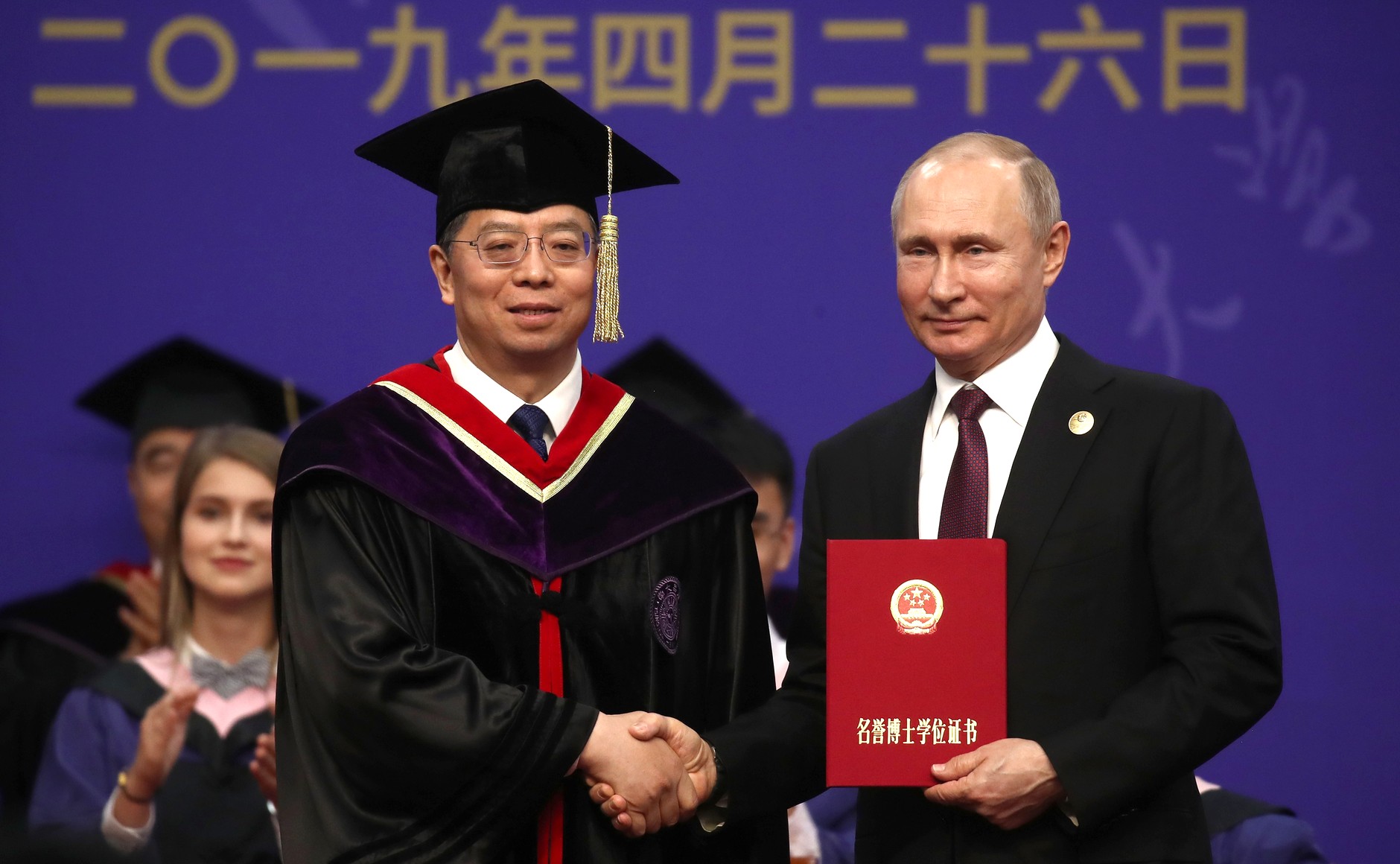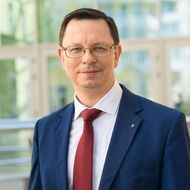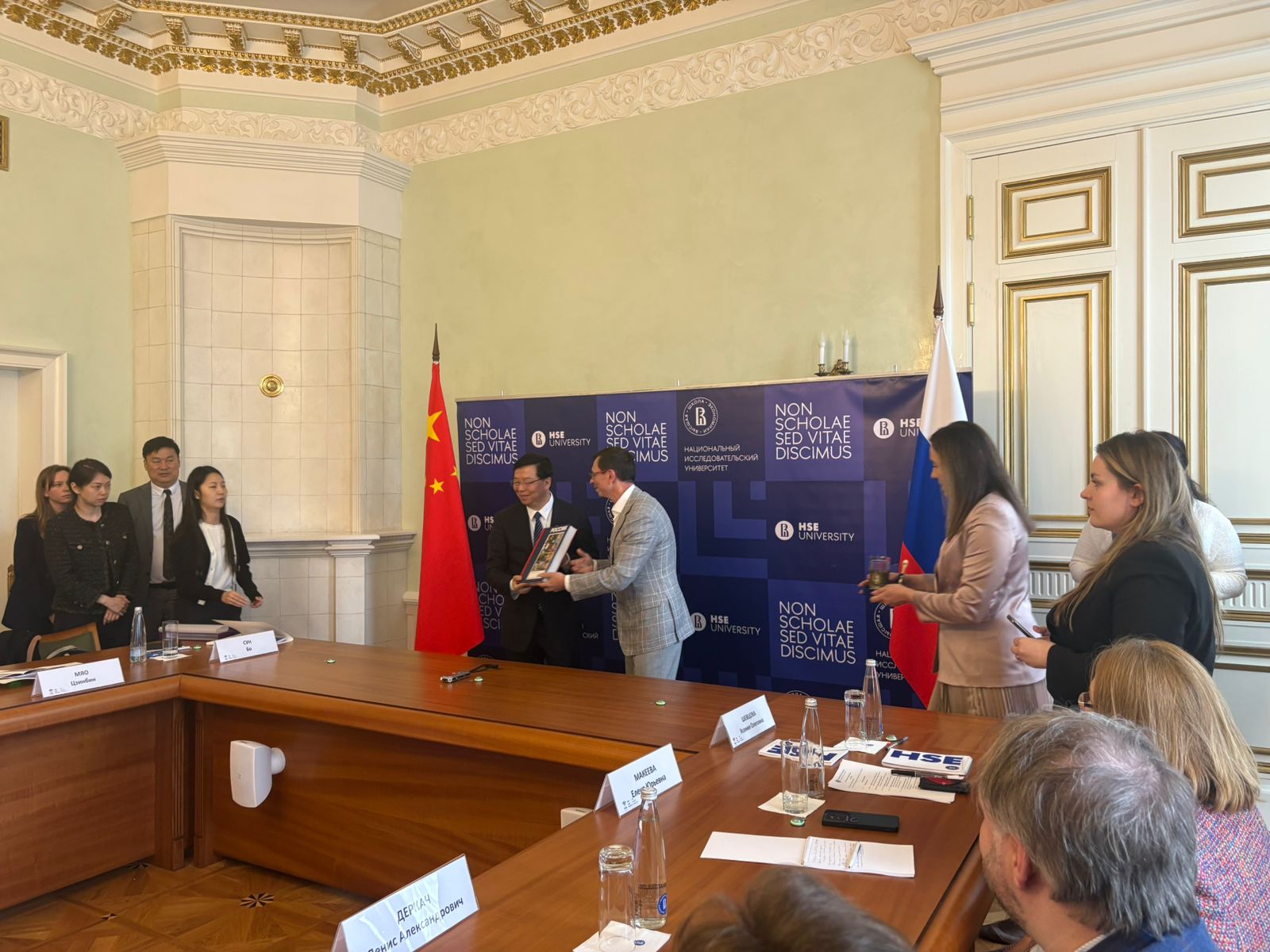HSE and Tsinghua University Strengthen Russia–China Partnership as part of Cross Year of Education
On May 10, a delegation from Tsinghua University—one of China’s leading higher education institutions—paid an official visit to HSE University. The delegation was led by Qiu Yong, Secretary of the CPC Tsinghua University Committee, former President and Chair of the University Council, and member of the Chinese Academy of Sciences.
The visit followed major intergovernmental agreements signed on May 8, 2025, in Moscow by Russian President Vladimir Putin and Chinese President Xi Jinping. Among these was the initiative to hold a Cross Year of Education in both Russia and China aimed at deepening humanitarian and academic ties. Both sides emphasised the importance of mutual learning and the exchange of best practices in higher education.

Ahead of the meeting, HSE University signed cooperation agreements with two of China’s top universities—Peking University and Tsinghua University. The agreement with Tsinghua focuses on developing academic, cultural, scientific, and educational ties, including joint projects and student exchanges. The signing took place at the Kremlin in the presence of both heads of state and was part of the official programme marking the 80th anniversary of Victory Day.
During the visit to HSE University, the two sides discussed concrete steps to strengthen their partnership. Priority areas included the launch of joint technology and research projects, the implementation of double degree programmes, the creation of a joint postgraduate school in artificial intelligence and education sciences, and the organisation of a summer school in Moscow for Tsinghua students. Particular attention was paid to the transformation of postgraduate education in both countries as a key element of mutual learning under the Cross Year of Education.

Nikita Anisimov
HSE Rector Nikita Anisimov highlighted that China is currently a world leader in scientific activity, including in fields such as chemistry, computer science, engineering, materials science, and mathematics. He also noted that HSE University holds leading positions in Russia in terms of the quality of its educational programmes, entry exam scores, and graduate employability.
According to the rector, cooperation with Tsinghua University is not only an exchange of knowledge but also an opportunity to enrich the academic environment. In turn, Qiu Yong praised the educational practices of HSE University.

The discussions also touched upon organising a summer school on Russian language and culture in Moscow for Tsinghua students and teachers, as well as the development of a joint educational programme in Russian literature—another step toward mutual cultural and academic exchange.
The Chinese delegation expressed appreciation for the HSE visit to Tsinghua in March 2025 and confirmed its interest in further developing cooperation. They showed particular interest in HSE's practices, which, according to Tsinghua representatives, are seen in China as exemplary and worthy of study.
In addition, the delegation expressed readiness to collaborate on addressing global scientific challenges, including the development of artificial intelligence and digital technologies. Special attention was also given to cooperation within the BRICS framework. Participants noted that this visit marks only the beginning of a long-term dialogue and expressed hope for its continuation.
HSE’s cooperation with leading Chinese universities spans a wide range of fields—from engineering and natural sciences to humanities and education policy. Deepening the partnership with Tsinghua is seen as a strategic step within the Cross Year of Education and the broader strengthening of the Russia–China academic dialogue.
See also:
FES Explores Collaboration Opportunities with Shanghai University
On June 27, 2025, the Faculty of Economic Sciences at HSE University hosted a delegation from the School of Economics at Shanghai University, a partner of the Faculty of Economic Sciences and the International College of Economics and Finance. The main goal of the meeting was to discuss the prospects for expanding cooperation between the partners, specifically the development of academic exchange and the organisation of joint events for students and faculty from both the School of Economics and the Faculty of Economic Sciences.
Building Bridges: Russian–Chinese Summer School on International Relations Opens
The XII Russian-Chinese Summer School on International Relations has opened at HSE University. This year’s theme is ‘Facets of the World Majority: Practice and Narratives.’ The school has brought together 27 master's and doctoral students as well as early-career researchers from leading universities in China and Russia.
‘The Development of Creative Industries Has Become a Priority for Both Russia and Uzbekistan’
The Tourism Development Institute under the Committee for Tourism of the Republic of Uzbekistan and HSE University have signed a cooperation agreement aimed at establishing and developing academic, cultural, and other partnerships in the fields of education and tourism. The initiative for signing the agreement came from the Institute for Creative Industries Development at the HSE Faculty of Creative Industries.
MIEM Begins Open Testing of Claw Engine 2.0
The team at MIEM’s Game Engineering and Interactive Systems studio has begun open testing of the second version of its game engine, Claw Engine. The HSE News Service takes a closer look at the product, which is being developed by MIEM’s student project teams.
Roundtable on Russia–China Cooperation in Antimonopoly Policy Held at HSE University
HSE University hosted a roundtable titled ‘New Challenges for Antitrust Regulation: The Chinese Perspective.’ The event was organised by the International BRICS Competition Law and Policy Centre (BRICS Centre). Special guests included Chinese colleagues from the Competition Policy and Assessment Centre (CPAC) of the State Administration for Market Regulation of the People’s Republic of China (SAMR). Last year, the BRICS Centre and CPAC SAMR signed an agreement on strategic cooperation.
‘We Demonstrated That HSE University Can Not Only Build a Satellite, but Maintain Its Operation’
The first HSE University satellite has completed its work in orbit after more than 35,000 hours of trouble-free operation, one billion kilometres travelled (24,600 orbits around the Earth), and hundreds of full-frame shots taken of the Earth's surface across an area of 320,000 km2. The HSE News Service shares the results of the satellite’s mission and the team’s plans for the near future.
Recruitment Campaign 2025: How HSE Attracts Top International Talent
For nearly two decades, HSE University’s international recruitment programmes have brought highly qualified professionals from the global academic job market to Russia—from recent PhD graduates of leading universities to experienced international scholars. On September 1, 2025, the university expects 50 new international faculty and researchers to join its academic team.
Urban Studies Experts from HSE Discuss Cooperation Prospects with Chinese Partners
The team of the HSE Faculty of Urban and Regional Development (FURD) has held a series of meetings with partners in China as part of its working visit focused on advancing cooperation. The agenda included urban and agglomeration ranking research, the development of unique educational programmes in urban studies, and other key topics.
HSE University and Sultan Qaboos University Discuss Cooperation in Science and Education
On May 29, 2025, a delegation from Sultan Qaboos University paid an official visit to HSE University. The meeting was held at the HSE building on Pokrovsky Bulvar and was dedicated to the development of partnership in science and education. The delegation was led by His Highness Dr Fahad Al Said, Vice Chancellor of Sultan Qaboos University. During the visit, the parties signed an agreement on cooperation and academic exchange between the universities.
First Digital Adult Reading Test Available on RuStore
HSE University's Centre for Language and Brain has developed the first standardised tool for assessing Russian reading skills in adults—the LexiMetr-A test. The test is now available digitally on the RuStore platform. This application allows for a quick and effective diagnosis of reading disorders, including dyslexia, in people aged 18 and older.


